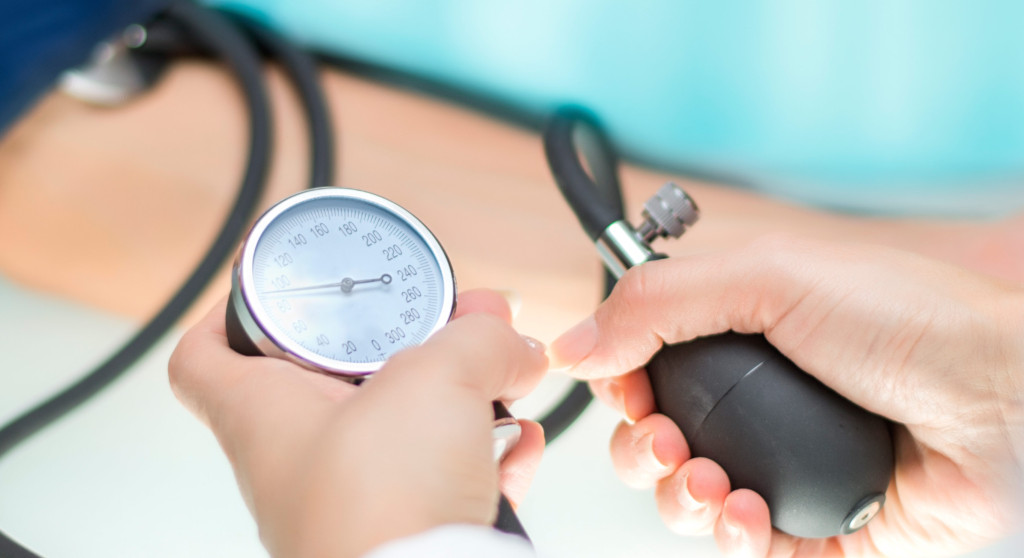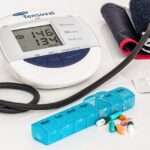
Hypertension, popularly known as high blood pressure was a disease for older people but in recent times medical reports have proven that this is no longer the case as it is now a concern for both the young and the old. Luckily there are some healthy practices which when followed helps to prevent hypertension.
What is Hypertension?
Hypertension, also known as high blood pressure, is a condition in which the force exerted on the artery walls by the blood is too high. It is usually defined as blood pressure above 140/90 mmHg, and considered to be severe when it is above 180/120 mmHg.
Causes.
There are two major determinants of high blood pressure. These are the amount of blood the heart pumps and the effort needed to move the blood through the arteries. Blood pressure increases when it becomes difficult for the heart to pump blood through the arteries when they become narrow.
However, there are some factors such as age, race, family history, eating too much salt, drinking too much alcohol, lack of exercise among others that can lead to hypertension.
Read this article if you want to learn more about the causes of high blood pressure.
Some Practices to Prevent Hypertension.
1. Lose Extra Weight to Maintain a Healthy Weight.
Losing weight is one of the most effective lifestyle changes that help in controlling blood pressure. Blood pressure often increases as your weight increase. Being too heavy or having obesity can also lead to disruption in breathing while you sleep, and this further raises the blood pressure.
Read more on How to lose weight naturally
Losing even few pounds of weight can significantly reduce your blood pressure and bring it down to safer levels.
2. Adopt Regular Exercise.
Regular physical activities such as exercise can significantly lower high blood pressure to safer levels. Exercise can also help prevent elevated blood pressure from becoming high blood pressure that’s hypertension.
Elevated high blood pressure is the stage just before hypertension. If you have hypertension, regular physical activities such as aerobic exercise can help bring your blood pressure down to safe levels.
Examples of aerobic exercise that help bring down blood pressure include walking, jogging, swimming, cycling, dancing and more. To keep blood pressure at normal levels, one must embrace regular exercise.
3. Reduce Salt Intake.
Even though the effect of salt (sodium) intake varies among groups of people, a small reduction in salt intake can significantly reduce blood pressure and improve heart health.
4. Reduce Alcohol Intake.
Drinking too much alcohol can cause blood pressure to rise by many points. However, reducing alcohol intake to about one alcoholic drink per day for women, and two alcoholic drinks per day for men, can help reduce blood pressure.
Note also that drinking too much alcohol can also reduce the effectiveness when on blood pressure medication.
5. Stop Smoking.
Smoking causes an increase in blood pressure levels and poses the risk of other health conditions. However, avoiding smoking can help reduce your blood pressure and reduce the risk of heart diseases and stroke. If you do not smoke, don’t start. But if you do, then seek help on how to quit.
6. Eat a Healthy Diet.
Your diet should be rich in whole grains, fruits and vegetables to reduce blood pressure. Low-fat dairy products and diets low in saturated fat and cholesterol can lower high blood pressure.
Include potassium in your diet to lessen the effect of salt on blood pressure. The best potassium sources are fruits and vegetables.
7. Get Enough Sleep.
Getting less sleep on regular basis is linked the risk of heart diseases, high blood pressure and stroke. However, enough sleep is good for your overall wellbeing and hence reduces blood pressure.
Note that getting a regular good night sleep of not less than 6 hours is important for you overall health.
8. Get Regular Check-ups to monitor your Blood Pressure.
It is very important to note that regular check-ups are essential for your overall wellbeing. Schedule time with your health care provider and regularly attend check-ups to help keep tabs on your blood pressure.
You can also make use of home blood pressure monitors after talking to the health care provider about it.



Pingback: Causes of High Blood Pressure. |